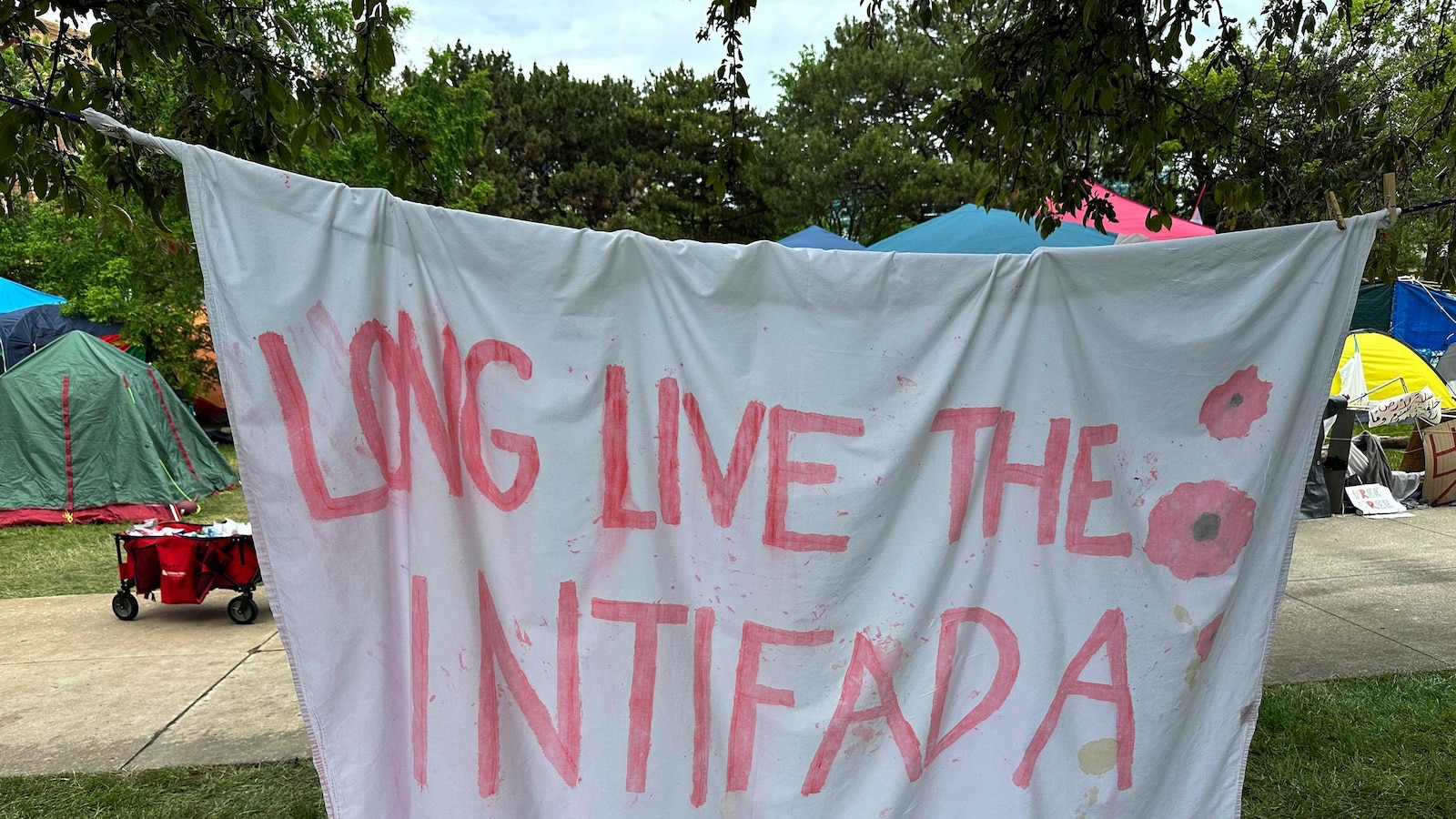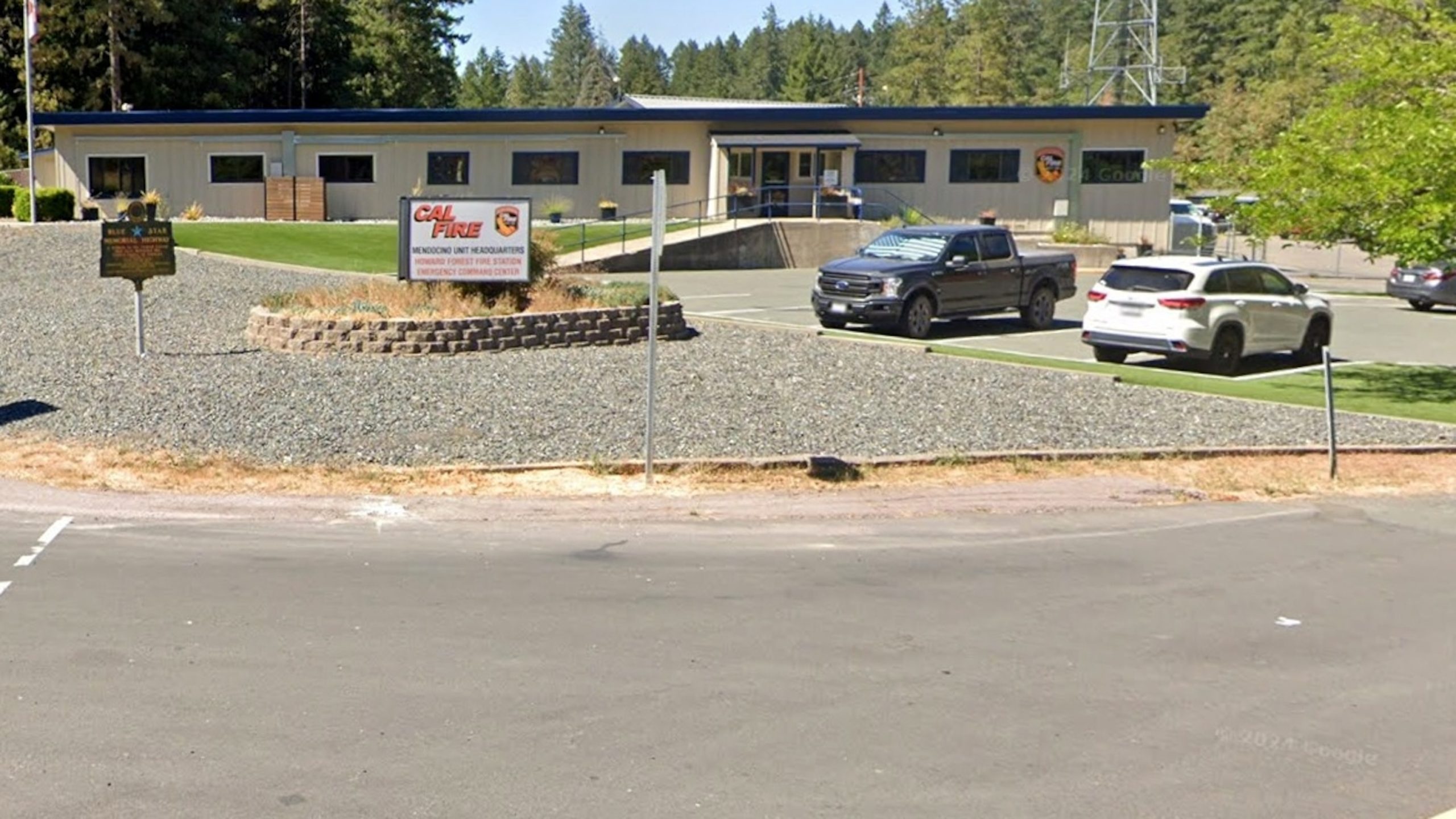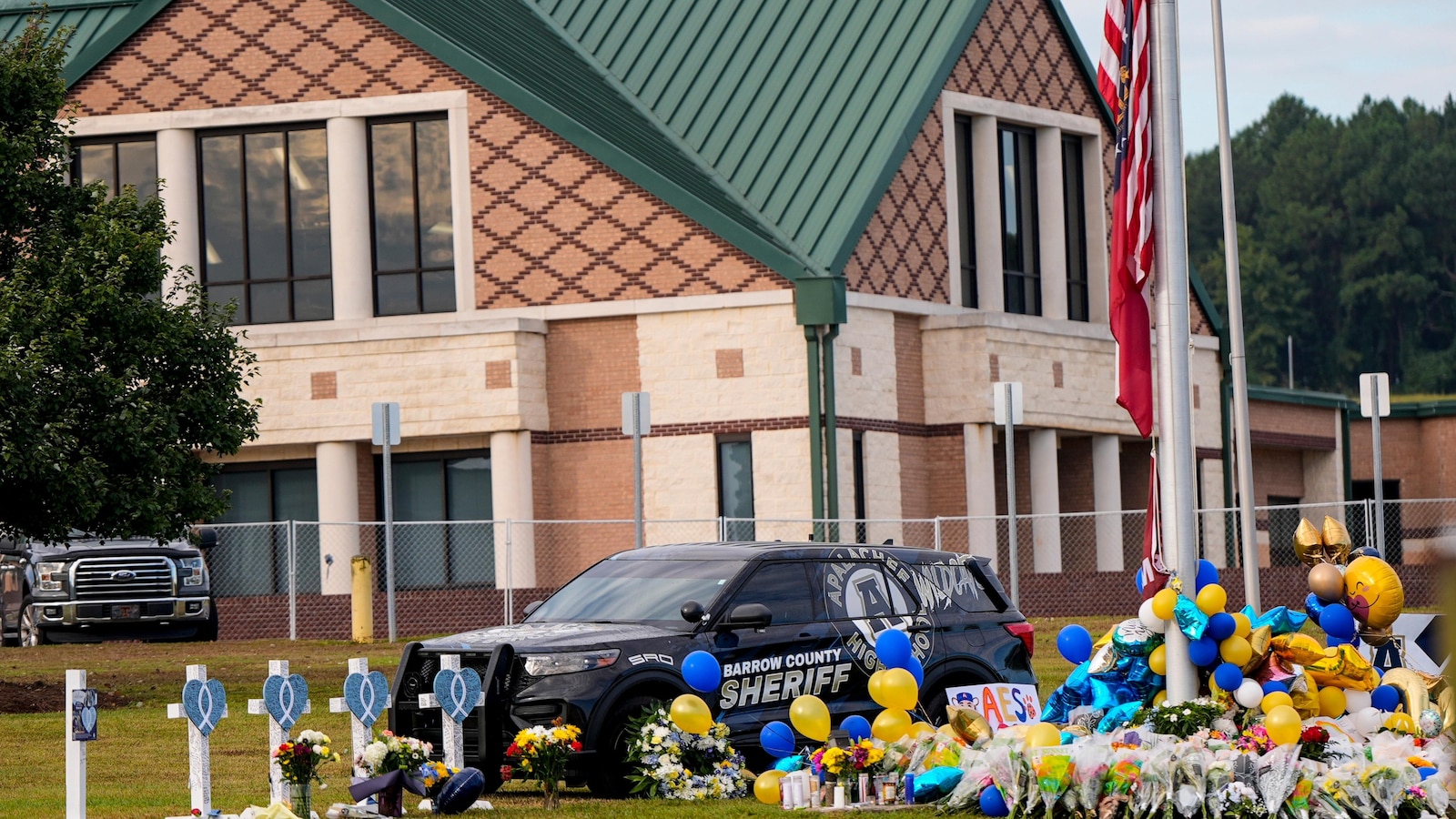
DETROIT — Police dismantled a pro-Palestinian encampment Thursday at Wayne State University in Detroit, two days after the school suspended in-person classes and encouraged staff to work remotely to avoid any problems with the protesters’ encampment.
Television footage showed campus police and Detroit police officers in riot gear tearing down fencing before they removed the protesters and started breaking down tents erected last week on green space near Wayne State’s undergraduate library.
After police began removing the encampment, the protesters chanted, “There’s no riot here, why are you in riot gear?” The protesters later began marching on Wayne State’s campus, and some people appeared to clash with officers, WXYZ-TV reported.
Protest camps sprang up across the U.S. and in Europe as students demanded their universities stop doing business with Israel or companies that they say support its war in Gaza. Organizers seek to amplify calls to end Israel’s war with Hamas, which they describe as a genocide against the Palestinians.
Wayne State President Kimberly Andrews Espy said in a statement that university police told people in the encampment about 5:30 a.m. Thursday to gather their belongings and leave, The Detroit News reported.
“The encampment at Wayne State University was removed this morning,” Espy said. “After ongoing consultation with the Board of Governors, university leadership, and leaders in the community — and after many good-faith efforts to reach a different conclusion — this was the right time to take this necessary step.”
Espy said that many people left the camp but that final cleanup was ongoing as of 7:30 a.m. She said campus operations would remain remote Thursday.
Wayne State suspended in-person classes Tuesday and encouraged staff to work remotely. School spokesperson Matt Lockwood said there had been “public safety concerns,” especially about access to certain areas.
Wayne State has 16,000 undergraduate students but fewer during the summer term. The protesters have demanded that the school divest from weapons manufacturing companies supplying Israel, provide a full disclosure of investments and cease delegation trips to Israel.
U.S. Rep. Rashida Tlaib, a Michigan Democrat, had visited the encampment to offer support to the protesters.
Ali Hassan, who represents WSU Students for Justice in Palestine, told WXYZ-TV this week that he believed the university’s shift to remote learning means the administration is taking notice of the student protests.
“The reason that they went remote is because we have put pressure on them,” he said.
The University of Michigan, west of Detroit in Ann Arbor, on May 21 broke up a similar encampment after 30 days.
Wayne State University police recently removed a pro-Palestinian camp that had been set up on campus in Detroit. The camp, which consisted of tents and banners advocating for Palestinian rights, had been erected by a group of students and activists in solidarity with the Palestinian people.
The camp had been in place for several days before university officials decided to take action and have it removed. According to a statement released by the university, the camp was in violation of campus policies regarding camping and outdoor structures.
The removal of the camp has sparked controversy and debate among students and community members. Some have criticized the university for silencing the voices of those advocating for Palestinian rights, while others have supported the decision to enforce campus policies.
The issue of Palestinian rights is a contentious and complex one, with strong opinions on both sides. The conflict between Israel and Palestine has been ongoing for decades, with both sides claiming historical and religious ties to the land.
Proponents of Palestinian rights argue that Israel’s occupation of Palestinian territories is a violation of international law and human rights. They call for an end to the occupation, the right of return for Palestinian refugees, and the establishment of a Palestinian state.
On the other hand, supporters of Israel argue that the country has a right to defend itself against terrorism and that any resolution to the conflict must ensure Israel’s security. They also point to the historical ties of the Jewish people to the land of Israel.
The removal of the pro-Palestinian camp at Wayne State University highlights the complexities of discussing and advocating for Palestinian rights in a university setting. While universities are meant to be places of free speech and open dialogue, they also have policies in place to ensure the safety and well-being of their students.
It is important for universities to navigate these issues carefully, balancing the right to free speech with the need to maintain order and safety on campus. As the debate over Palestinian rights continues, it is crucial for all voices to be heard and for respectful dialogue to take place in order to work towards a peaceful resolution to the conflict.


